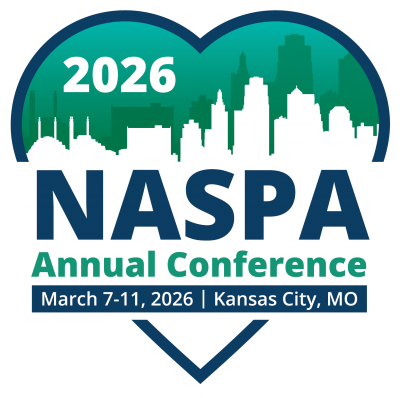Indigenous Engagement at the NASPA Annual Conference
Although NASPA was early to incorporate land acknowledgments in conference openings and remains committed to engaging with local Indigenous communities as a part of how we enter spaces, our Indigenous members made clear that repairing relationships and centering Indigeneity must go beyond acknowledging land.
This year’s Annual Conference in Seattle offers an example of how we are integrating Indigenous content, worldviews, and wisdom in multiple ways across the conference program. Please join us for some or all of these keynote presentations, featured programs, general interest sessions, meetings, and events.
Keynote Presentation and Featured Educational Session: Matika Wilbur
Keynote: Tuesday, March 12, 11 a.m., Summit Ballroom
Featured Educational Session: Indigenous Education in Today’s Postsecondary Environment: Tuesday, March 12, 1:30-3 p.m., Summit Ballroom 3
Matika Wilbur, from the Swinomish and Tulalip Tribes, is a celebrated National Geographic photographer, NYT best selling author, distinguished keynote speaker, filmmaker and podcast host. In 2023, her book, “Project 562: Changing The Way We See Native America” was released and instantly became a NYT Bestseller. Her podcast, All My Relations, has been downloaded 3 million times, and she recently made her directorial debut for the film “One Small Thing,” which is currently touring the international film festival circuit.
Extended Learning Session: Honing Our Narrative: Rhetorical Sovereignty and Native Student Development
Monday, March 11, 2:40 to 4:10 p.m., Summit Ballroom 3
This Extended Learning Session centers on how Native higher education student communities at three institutions explore and voice the centrality of rhetorical sovereignty in conceptualizing their roles and responsibilities, thereby transforming how they locate themselves within their institutions. Following student presentations, Drs. Karen Francis-Begay (Diné) and Stephanie Waterman (Onondaga, Turtle Clan) will offer critical reflections on the important role of stories in relation to Native student success.
General Interest Sessions
SA Stories: Walking Through With My Ancestors Behind Me: A Story of My Journey As An Indigenous Graduate Student
Tuesday, March 12, 9-10:15 a.m., Summit Flex A
Presenter: Brandon Molina Berrios
Holding onto Heritage While Under Attack: Identity Development and Support for American Indians at the University of North Carolina at Pembroke
Tuesday, March 12, 10-10:50 a.m., Hyatt Regency 606-Twisp
Presenter: Ashley McMillan (Lumbee)
Native Hawaiian Moʻolelo (Storytelling) Strategies, and How They Can Help You Support Native Students
Tuesday, March 12, 2:40-3:30 p.m., Hyatt Regency 601-Hoh
Presenters: Stacy Prellberg (Kanaka ʻŌiwi), C. B. Kikilina Lani (Kanaka ʻŌiwi), & Jennifer Quirk (Kanaka ʻŌiwi)
Catalyzing Compassion: Integrating Indigenous Wisdom and Invisible Awareness in Higher Education
Tuesday, March 12, 3:50-4:40 p.m., Summit 334
Presenters: Tara Leigh Sands & April Yazza (Diné/Shiwi)
We encourage you to visit two displays that can be viewed at the convention center.
Indigenous Campus Spaces
Campus spaces that lift up Indigenous culture are important not only as a space and place for Native students to gather, but also as important cultural learning spaces. The signs highlighting campus spaces provide examples of different ways that institutions have approached creating learning and community spaces.
Tribal Signs
The first Indigenous tribes settled in the Pacific Northwest around 8,000 years ago. They adapted to the coastal climate and used large canoes to travel along the coastline and rivers. The tribes were large, spoke a variety of languages, and densely populated many of the areas of the Pacific Northwest near the coastline. Today, many of those tribes continue to thrive across the region.
The Indigenous Peoples Knowledge Community constituent group conference guide includes opportunities for reflection, gathering, learning, and celebrating. Please join the IPKC for these programs.

